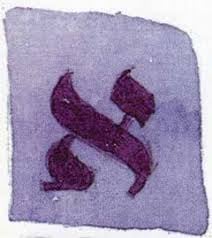Torah Portion VaYikra Leviticus 1:1–5:26
Moshe Kempinski
www.shorashimshop.com
The book of VaYikra ( Leviticus) begins with a mystery. The verse reads “And He called( VaYikra) to Moses, and HaShem spoke to him from the Tent of Meeting, saying, (Leviticus 1:1).
The word VaYikra (and He called) ends with the letter “Aleph “that is shrunken in size.
Our sages explain that small “Aleph” with a Midrash that points to Moshe’s trait of humility. It explains that as Moshe wrote down the Torah, he wanted to minimize his own importance. He shrunk the letter aleph so as to minimize the fact that G-d called out to him. By shrinking the letter “Aleph”, the word VaYikra seems to be read as VaYikar which is translated as “happened upon”.
We see the use of the word VaYikar to describe G-d’s encounter with Bilaam; “G-d happened ( VAYIKAR) upon Balaam, and he said to Him, “I have set up the seven altars, and I have offered up a bull and a ram on each altar.”
Moshe out of his modest nature wrote the verse inn such a way that partially hid the fact that it was Hashem Himself that called out and beckoned Moshe to come forward. Yet, in fact it was exactly that mixture of humility, awe and reverence that epitomized Moshe that prompted Hashem to beckon to Moshe to come nearer.
Yet I sense that there is more to this small Aleph.
The Aleph is one of the Divine letters representing G-d’s Presence. The sages related it to the word Aluf or Master .The written letter Aleph is formed from three other letters. Two Yuds (each Yud represents the number 10), top and bottom, and a Vav that connects them (The numerical equivalent of Vav is 6) the form of its letter speaks of a link between the upper and lower world, the heavens and the earth. The numerical equivalent of its parts is 10 + 10 + 6 =26. The number 26 is the value of the name of Hashem
To understand the connection of that information we need to explore another verse.
There is another mysterious Aleph in our Biblical text that is simply missing from a word and this shrunken Aleph may be connected to that missing Aleph.
The Torah tells us to remember, forever, the deeds of one nation:
“Remember what Amalek did unto you by the way as you came forth out of Egypt; how he happened upon you (karcha) by the way, and smote the hindmost of you, all those who were stragglers, when you were faint and weary; and not G-d-fearing.”(Deuteronomy 25:17)
They could not have happened upon them — Amalek lived very far from the Israelite camp. Rashi explains that the word for “happened upon you,” karcha, comes from the root of mikreh, or happenstance.
Reb Tzadok HaCohen explains that “the whole essence of Amalek is random happenstance… and as it is written ‘how they happened [Asher karcha] upon you’: since Amalek attributes all things to random chance.”. The Amelikites were intent on declaring to the woorld that “there i no Divine purpoe or Guidance. There is no G-d that is Master of the world.
That is the reason that Amalek attacked the Israelites immediately after the miraculous exodus from Egypt. They wanted to undo the impact of the Exodus and cloud over its message that the world was being ruled with Divine purpose. That is also the reason the descendant of Amalek, Haman, decided to throw lots to determine the date of the Jewish people’s destruction, rather than destroying them the moment he had the chance. It was more important for him to solidify the belief in random happenstance when confronting the Jew than it was to eradicate the Jew immediately.
As a result of Amalek’s attack we read of an ominous and dramatic declaration;
“And Hashem said unto Moshe: ‘Write this for a memorial in the book, and rehearse it in the ears of Joshua: for I will utterly blot out the remembrance of Amalek from under heaven. ‘And Moshe built an altar… And he said: ‘the hand upon the throne of Hashem: Hashem will have war with Amalek from generation to generation.” (Exodus 17:14-16)
Moshe is saying that “: the hand (of Amalek is) upon the throne of Hashem” and the word for throne (Kiseh spelled Chaf Samech Aleph) is written without the Aleph and is pronounced here as Kes.
The “Aleph” of G-d’s throne is missing.
Amalek’s mission of sowing confusion and doubt in the world is essentially an attempt to hide the simple truth of Hashem’s rulership in the world.
The Tzror Hamor written by Rabbi Avraham Sabba one of the persecuted and expelled Jews of Spain explains that “the call to Moshe came from the Aleph of the Divine name of EhYeh (I Will Be)”.
He understood from his own bitter experience the eternal attempts of Amalek to blot out Hashem and His people .When Moshe made his “Aleph” smaller it was meant to allow for the “ALEPH” of Hashem to be perceived in a much more tangible way.
Amalek throughout the ages will continue to try to erase the Aleph of Hashem’s rule in the world.
Moshe in the wilderness, Mordechai and Esther in Shushan, and all of their descendants since, strive with humility, awe and determination to ensure its constant revelation.
That continues to be the mission for all of Hashem’s children. When we make ourselves a little smaller we allow
Hashem to be more revealed in our lives.
The secret power of the small ALEPH
LeRefuat Yehudit bat Golda Yocheved
and Avraham Yitzchak ben Rochel Leah
